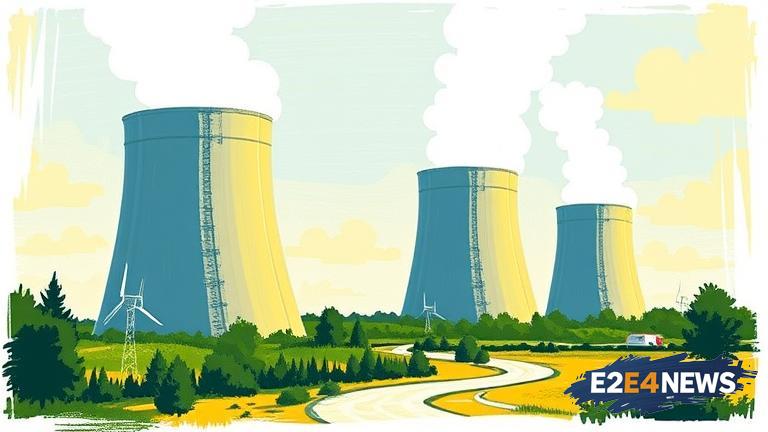Missouri’s push for nuclear energy has been gaining momentum in recent years, with proponents arguing that it is a clean and reliable source of power. However, some critics are warning that the state’s efforts to promote nuclear energy could ultimately hurt consumers’ pockets. The concern is that the cost of building and maintaining nuclear power plants will be passed on to consumers in the form of higher electricity bills. Missouri’s largest utility company, Ameren, has already announced plans to build a new nuclear power plant in the state, which is expected to cost billions of dollars. While the company claims that the new plant will create jobs and stimulate economic growth, others are skeptical about the potential benefits. Some argue that the cost of nuclear energy is not competitive with other forms of energy, such as wind and solar power, and that the state should be focusing on developing these alternative sources instead. Additionally, there are concerns about the safety and environmental impact of nuclear power plants, which could also have significant financial implications. For example, the cost of disposing of nuclear waste is a significant concern, as it requires specialized facilities and equipment. Furthermore, there is also the risk of accidents, such as the Fukushima disaster in Japan, which could have devastating consequences for the environment and human health. Despite these concerns, Missouri’s lawmakers have been pushing forward with legislation to support the development of nuclear energy in the state. The Missouri Legislature has passed several bills in recent years aimed at promoting nuclear energy, including a measure that allows utilities to charge customers for the cost of building new nuclear power plants. While the legislation has been touted as a way to support economic development and create jobs, others see it as a giveaway to the utility companies at the expense of consumers. The issue has sparked a heated debate in the state, with some arguing that the benefits of nuclear energy outweigh the costs, while others claim that the risks and financial burdens are too great. As the debate continues, it remains to be seen how Missouri’s push for nuclear energy will ultimately play out and what the implications will be for consumers. The state’s Public Service Commission is currently reviewing Ameren’s proposal to build a new nuclear power plant, and a decision is expected in the coming months. In the meantime, consumers and advocacy groups are urging lawmakers to reconsider their support for nuclear energy and to explore alternative sources of power. The financial implications of Missouri’s nuclear energy push are significant, and it is likely that the issue will continue to be a major point of contention in the state for years to come. The potential impact on consumers’ pockets is a major concern, and it is essential that lawmakers carefully consider the costs and benefits of nuclear energy before making any decisions. Ultimately, the future of nuclear energy in Missouri will depend on a variety of factors, including the cost of construction, the availability of alternative sources of power, and the level of public support for the technology.
